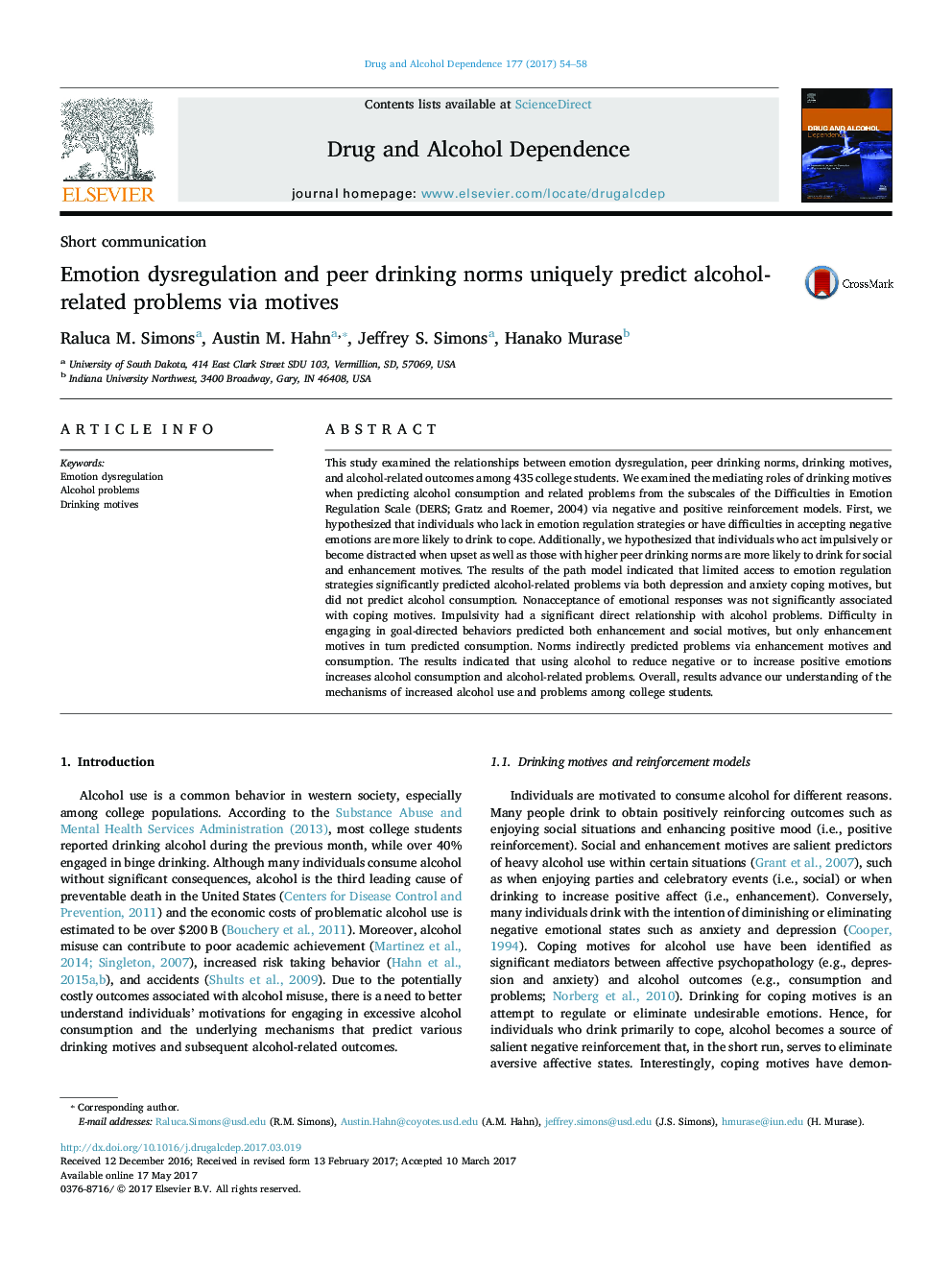| Article ID | Journal | Published Year | Pages | File Type |
|---|---|---|---|---|
| 5120056 | Drug and Alcohol Dependence | 2017 | 5 Pages |
â¢We tested associations between emotion dysregulation, motives, and alcohol outcomes.â¢Coping motives mediated emotion dysregulation and alcohol problems.â¢Same sex drinking norms predicted greater alcohol consumption.â¢Impulsivity was directly associated with greater alcohol problems.
This study examined the relationships between emotion dysregulation, peer drinking norms, drinking motives, and alcohol-related outcomes among 435 college students. We examined the mediating roles of drinking motives when predicting alcohol consumption and related problems from the subscales of the Difficulties in Emotion Regulation Scale (DERS; Gratz and Roemer, 2004) via negative and positive reinforcement models. First, we hypothesized that individuals who lack in emotion regulation strategies or have difficulties in accepting negative emotions are more likely to drink to cope. Additionally, we hypothesized that individuals who act impulsively or become distracted when upset as well as those with higher peer drinking norms are more likely to drink for social and enhancement motives. The results of the path model indicated that limited access to emotion regulation strategies significantly predicted alcohol-related problems via both depression and anxiety coping motives, but did not predict alcohol consumption. Nonacceptance of emotional responses was not significantly associated with coping motives. Impulsivity had a significant direct relationship with alcohol problems. Difficulty in engaging in goal-directed behaviors predicted both enhancement and social motives, but only enhancement motives in turn predicted consumption. Norms indirectly predicted problems via enhancement motives and consumption. The results indicated that using alcohol to reduce negative or to increase positive emotions increases alcohol consumption and alcohol-related problems. Overall, results advance our understanding of the mechanisms of increased alcohol use and problems among college students.
